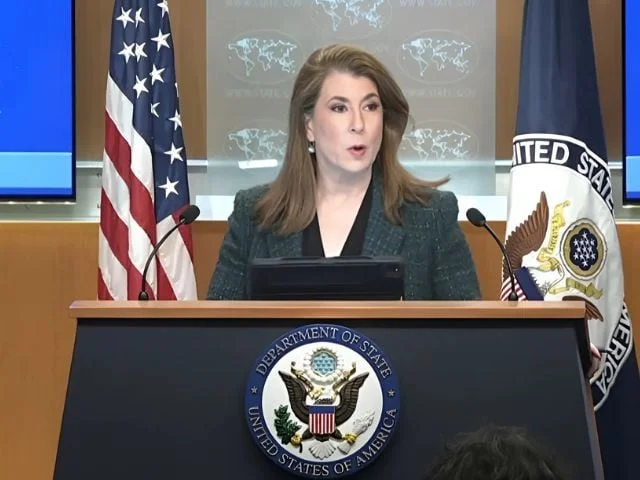Islamabad/Washington, April 03: The Trump administration has seemingly delayed plans to impose visa restrictions on citizens from multiple countries due to concerns over inadequate vetting procedures identified by U.S. security agencies.
The proposed travel restrictions were expected to affect travelers from over 40 countries, including Pakistan.
This initiative stemmed from an executive order issued by President Donald Trump on January 20, titled Protecting the United States from Foreign Terrorists and Other Threats.
The order directed federal agencies to assess global screening protocols and recommend visa restrictions by March 21.
However, the deadline passed without an announcement, and the State Department later confirmed that no new timeline had been set.
When questioned about the report’s submission to the president, State Department spokesperson Tammy Bruce indicated that the original “target date” was no longer in effect.
At a March 31 press conference, Bruce clarified that while the review process remained ongoing, there was no immediate announcement regarding new restrictions.
Colour-Coded Categorization
Reports in U.S. media suggested that countries under review were being classified into three categories—red, orange, and yellow—based on their compliance with security and vetting standards.
However, the lack of urgency in implementing the policy has sparked speculation about internal disagreements within the administration regarding its scope and execution.
President Trump has advocated for reinstating stricter immigration controls, similar to the travel bans upheld by the Supreme Court in 2018.
Despite this, the administration appears to be facing logistical, legal, and diplomatic obstacles in enforcing new restrictions.
Bureaucratic and Legal Hurdles
One significant challenge is bureaucratic coordination.
The executive order tasked high-ranking officials, including Secretary of State Marco Rubio, Attorney General Pam Bondi, Secretary of Homeland Security Kristi Noem, and Director of National Intelligence Tulsi Gabbard, with compiling a list of restricted nations.
However, the absence of a public report suggests ongoing deliberations or a potential reassessment of the approach.
Legal considerations may also be influencing the delay. Previous travel bans faced multiple lawsuits, and only after modifications were they upheld in court.
Read More: 10 Weakest Passports in 2024: Limited Global Access and Visa Restrictions
The administration may be taking a cautious approach to avoid legal entanglements or waiting for a more favorable political climate before moving forward.
Meanwhile, over 30 U.S. lawmakers have called on President Trump to abandon the proposed travel restrictions, citing concerns that they could harm the economy, damage diplomatic relationships, and fail to strengthen national security.
In a letter, they argued that such measures were extreme and had economic and moral implications that outweighed any perceived security benefits.
Diplomatic Concerns
The postponement of the travel ban may also reflect diplomatic sensitivity, given that some of the countries reportedly under review—including Pakistan, Russia, and Venezuela—are key U.S. partners.
The administration may be weighing whether the geopolitical consequences of such restrictions outweigh their intended impact.
Pakistan, in particular, plays a critical role in counterterrorism efforts, despite historically complex ties with Washington.
Reports suggest that Pakistan has been placed in the “orange” category, which would require its citizens to undergo in-person visa interviews.
Also Read: Pakistan Approaches US Authorities on Visa Restrictions
If further security concerns arise, the country could be shifted to the “red” category, leading to more severe restrictions.
However, Pakistani officials have stated that they remain in discussions with U.S. authorities and that no final decisions have been made.
The delay indicates that the administration is reevaluating whether the proposed visa restrictions align with broader foreign policy objectives.
